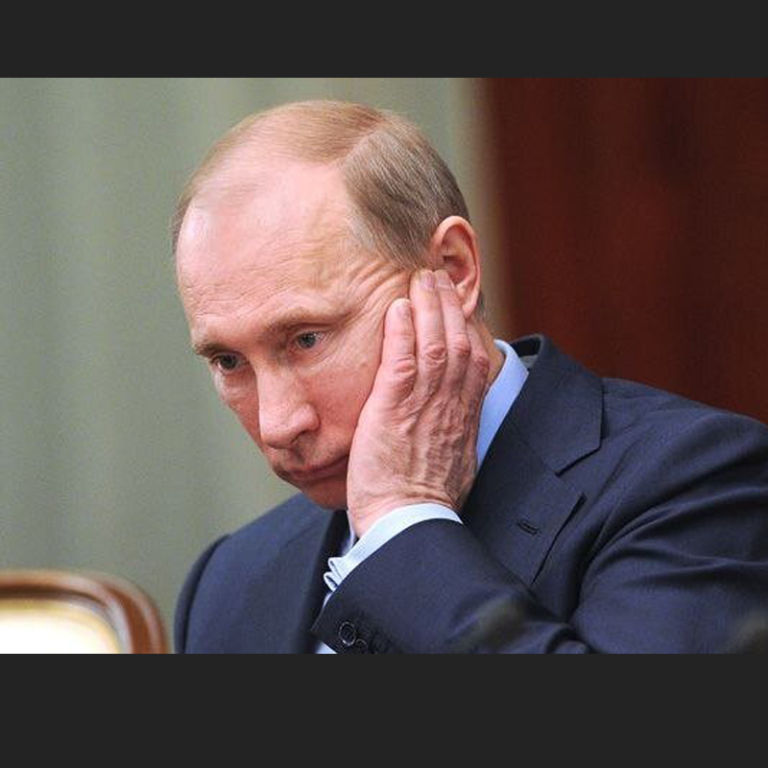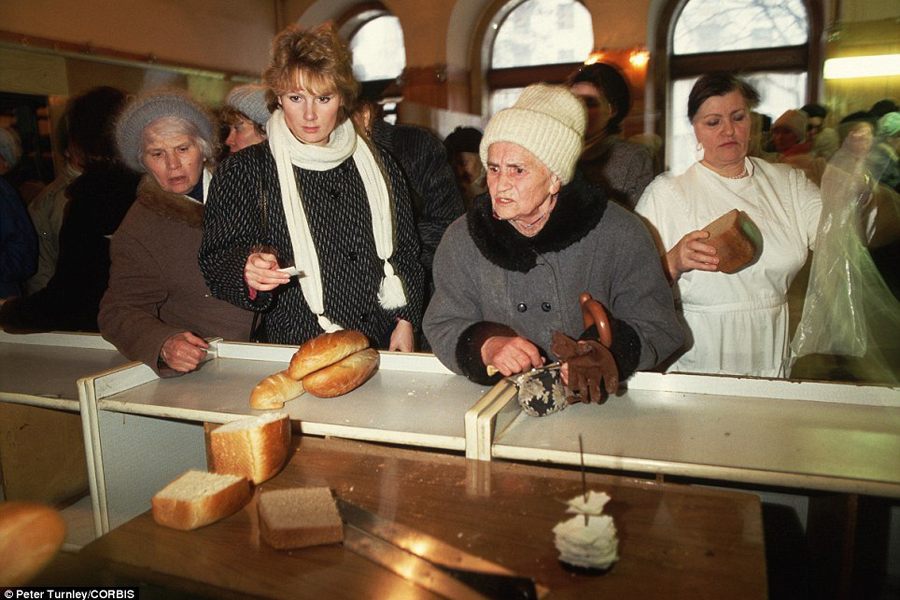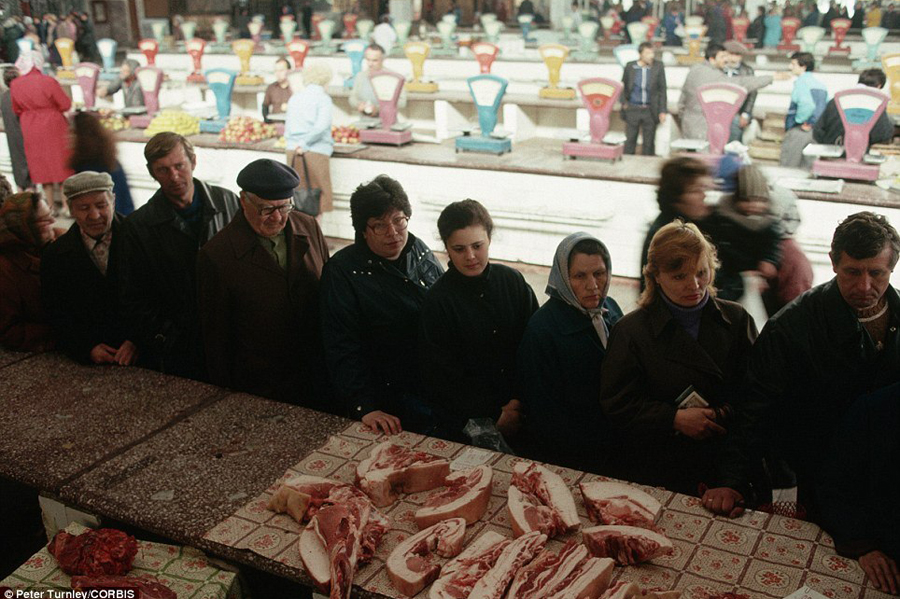
The economic interdependence of rival countries is one of the safeguards that can prevent wars. Therefore, when a nation violates international law or starts an aggressive invasion, other countries apply economic sanctions against the aggressor. This is a powerful tool that affects the course of war, especially beyond the front lines. In essence, economic sanctions are financial restrictions imposed on individuals, groups of people, companies or whole economic sectors. Having started a war of aggression against Ukraine, Russia could not avoid international sanctions. The European Union alone implemented six packages of economic restrictions against Russia from February to June 2022. As a result, the Russian Federation was driven to a major foreign debt default on June 27, 2022.
!
The article contains links to Russian websites that can be viewed via VPN.Let us consider exactly how sanctions affect Russia and what Ukrainian, European and American experts say on the subject. A spoiler: they all agree that the sanctions against Russia have a delayed and gradual effect, so they have to be even tougher to have a stronger impact on the aggressor state. Moreover, for maximum effect, the restrictions need to hit oil and gas exports which are the main source of income of the Russian Federation.
In modern history, sanctions as a tool of political influence were first used by Napoleon Bonaparte. He prohibited all the French allies or countries that at the time depended on France to trade with Great Britain and managed to uphold the Continental Blockade for eight years (1806 – 1814).
By the late 19 century, Great Britain used trade sanctions against its adversaries to prevent them from sea trade and imposed 21 naval blockades against European and South American countries.
Economic sanctions became more common after World War I, however, modern scientists, such as Lance Davis and Stanley Lewis Engerman, question their effectiveness. For example, the Abyssinian Crisis resulted in the temporary occupation of Ethiopia despite the sanctions imposed on Italy by the League of Nations in 1934. Regardless, sanctions were actively used after World War II. It was also the time when the economic interdependence of the countries became better understood. As a result, the European Coal and Steel Community (ECSC) was created in 1951 in order to prevent future wars in Europe. Six countries which had developed coal and steel resources, namely Belgium, West Germany, Italy, Luxembourg, the Netherlands, and France, established a supranational entity. This union was supposed to work like dynastic marriages arranged to avoid future wars. However, the ECSC turned out to be ineffective and lost its relevance over time. In 2002, it ceased to exist after the expiration of the Treaty of Paris. Nevertheless, sanctions still remain one of the main tools of international legal regulation. They help restrain the development of the economy of an aggressor state (and its allies), minimize its influence on international politics, and speed up the end of a war.
The League of Nations
An international intergovernmental organization that emerged after the World War I to ensure peace and develop cooperation between nations. Its charter was signed by 44 countries.Modern international law defines two types of sanctions:
– imposed as self-help: embargo, termination or suspension of diplomatic relations, sanctions against citizens of the aggressor state, economic restrictions, etc.;
– implemented with the help of international organizations: the aggressor is excluded from international communications, its member rights at international organizations are limited, and military supply to allies is restricted.
Embargo
Trade and economic restrictions imposed on the aggressor country in order to weaken its economy.Despite the full-scale war, the Russian economy remains connected to other world economies. Russia is one of the main exporters of oil and gas, which makes countries depend on it. However, manufacturing of a huge range of seemingly “domestic” Russian goods actually fully depends on the import of parts and raw materials. So far, Russian companies have been able to function only because they have an old stock of imported components. This is the case, in particular, in the military supply and weapon industry, which, despite heavy losses and deficits, still has the resources to continue production.
How do sanctions work?
As of July 7, 2022, there are 11,254 global restrictions imposed on Russia in total. Meanwhile, sanctioned countries such as Iran, Syria, North Korea, Myanmar, Venezuela and Cuba combined have had 9,670 restrictions over decades.
Such a high number of sanctions against Russia can be explained by the fact that the global community started to impose them back in 2014, after the Russian occupation of Crimea and the start of the war in Donbas, even though, Russia has managed to circumvent them. Then, the international community sought to make Russia stop financing, arming and sending terrorists to Ukrainian territories. However, the world continued to trade with the Russian Federation and supply spare parts for its military-industrial complex. The aggressor state took advantage of the dual use of many spare parts and goods. For example, semiconductors were suitable for both the production of household appliances and weapons. Also, these sanctions turned out insufficiently effective because they did not affect oil and gas exports, which are Russia’s main sources of income. As one can see, the sanctions imposed in 2014 did not stop Russia from starting a full-scale war in Ukraine 8 years later.

In 2022, the “sanctions” situation for Russia became tougher. The restrictions became larger scaled and were imposed by the USA, Great Britain, Canada, Japan, Switzerland and the EU countries. The EU introduced package sanctions, which were a set of simultaneous restrictions on several areas of the economy. They cover the imports of raw materials, electronics, the latest technologies and natural resources (in particular, coal and natural gas), limit transportation to and from the Russian Federation, ban the broadcasting of Russian channels, and suspend previously signed agreements with the EU countries. Sanctions were also imposed on some Russian oligarchs, officials and heads of the so-called Donetsk and Luhansk People’s Republics (DPR and LPR). A number of sanctions are also aimed at weakening Russia’s military complex.
On May 31, 2022, the EU adopted the sixth package of sanctions limiting the oil imports from the Russian Federation and excluded its largest bank, Sberbank, from the SWIFT payment system. Raw materials delivered by sea were sanctioned as well.
SWIFT
The Society for Worldwide Interbank Financial Telecommunications is an international system for transferring information and making payments used by global banks and financial institutions.
An important precedent was also set when hundreds of international companies left the Russian market. After 2014, some businesses partially limited their activities in Russia, for example, the American computer system manufacturer Dell stopped selling its products there. However, it was the first time that such a mass exodus took place. This process is not directly related to the introduction of sanctions, but rather concerns the reputational policy that companies independently choose to follow. An important factor here was the active stance of civil society which monitored brands’ compliance with their promises and urged consumers to refuse to support companies that continued to operate in the Russian Federation. Corporations themselves insist to stop financing Russia’s terrorism in Ukraine. Although many companies have already “cancelled” Russia and left its markets, there are still those that do not keep their promises and continue to operate on Russian market.
One of the consequences of sanctions on Russia was the default on June 27, 2022. Then, the terrorist state was supposed to settle its $100 million foreign debt, but due to the imposed restrictions, the money did not reach the creditors’ accounts. The government of the Russian Federation stated the funds were “stuck” in the Euroclear settlement system and claimed that the default was a “farce.” The Russian government uses verbal manipulation and invents mitigating terms and phrases to hide the truth or divert attention from its failures or any “inconvenient” phenomena.
All in all, the default really affects the Russian Federation. So far, it has more of a symbolic meaning, but only because the sanctions have already caused a major blow to the Russian economy. Nevertheless, even if the full-scale war with Ukraine ends and international restrictions are lifted, it will be difficult for the Russian economy to recover and attract new investments precisely due to the default whose results will be obvious in the long term.
Russia responds to restrictions in its own way: the regime assures that that will only strengthen its economy and make the country stronger. At the same time, Russia threatens sanctions in response and some of them are imposed even on the dead. It also responds by “import substitution” and nationalization of international companies.

Some sanctions against Russia are essentially not effective enough and, therefore, have almost no effect. A good example is sectoral sanctions imposed on Gazprombank, one of the three largest banks in Russia through which Russia receives payments for gas and oil from European countries, and then transfers salaries and “combat allowances” to the Russian military personnel.
The effectiveness of new restrictions has become a subject of discussion in international informational space. Analysts from different countries investigate whether the imposed sanctions are working, look into their current effect on specific areas of the Russian economy, and make forecasts for the future.
Opinions of Ukrainian experts
On March 30, 2022, the independent analytical center “Ukrainian Institute for the Future” (UIM) published a report, “Sanctions against the Russian Federation: what can actually break the Putin regime.” The analysts believe that, in general, sanctions will not threaten the dictatorial regime in the next one or two years. However, they will have a critical impact on the level and quality of life of Russians in the long term, approximately in 10 years. This will increase emigration and escalate the demographic crisis in Russia. UIM puts forward the following arguments to prove their point of view.
First, protest sentiments in Russia are still low, while the security services remain loyal to the Putin regime. The middle class that lives in big cities might be the only source of qualitative political changes, especially, young people (up to 30 years old), who are already experiencing the impact of sanctions and pressure from the existing system can be the only source of quality political changes.

Picture: Peter Turnelet/CORBIS.
Secondly, internal stability in the Russian Federation (and, in a way, of the effectiveness of Russia’s global “soft power”) is based on Putin’s personal image. Russians still trust him, and after years of propaganda brainwashing, view even his criminal acts (such as the invasion of Ukraine) as legitimate, therefore, they see no reason to advocate for regime change. The population is not worried by the number of war victims, and even more so, they make spiteful comments about them on social media. The commodity deficit is still not significant enough to encourage ordinary Russians to more than complain on the Internet. According to UIM, profound changes should be expected only in one to four years, provided that the pressure of sanctions remains at the same level or increases.

Picture: Peter Turnelet/CORBIS.
Despite the researchers’ conservative estimates, monitoring of Russia’s media discourse and ordinary Russians’ social networks shows that most citizens cannot imagine their lives without such foreign brands as Mcdonald’s, ZARA, IKEA, etc. Even though the authorities promote the “we can do everything ourselves” narrative and offhandedly offer domestic alternatives, their success is very doubtful.

McDonalds in Moscow, Russia, 1992. Picture: Martin Parr/Magnum Photos.
Thirdly, Russia’s economy is still stable. One of the reasons for this is the absence of a complete embargo on oil export. So far, the USA, Great Britain, Canada and Australia have refused Russian oil, which accounts only for 6% of the total Russian export of this raw material. The oil embargo from European countries and China is necessary for a significant impact on Russia’s economy but UIM believes this is unlikely to happen in the nearest future. So, as long as oil prices remain high and Russia sells oil, there are no risks for the financial stability of the aggressor state.
However, sanctions have a significant impact on some areas of Russia’s economy. These include the aviation and automobile industry, machine-building, electronics, metallurgy and modernization of the oil and gas sector. The more technological the industry is, the more it depends on the import of parts, which has been stopped, reduced or significantly limited due to imposed sanctions.

The online publication of “Ekonomichna Pravda” in its discussion with the Center for Social and Economic Research “CASE Ukraine” also agreed that the Russians would experience the sanctions in full later. Until then, they will continue to support the war and Putin’s state policy, because there are no drastic changes in their standards of living yet. In the near future, the Russian Federation will be able to supply its population with food and basic goods because it normally imported only a third of its total food consumption. However, their cost will steadily increase as prices for fresh vegetables, buckwheat, potatoes, milk, etc. have already doubled and tripled over the past two years.
On top of that, the volume of Russia’s export will decrease. For example, the export of precious stones has already stopped. Shares of the company “Diamonds of Russia”, which sold part of its products abroad, already lost half of their value on the Moscow stock exchange. Changes will also affect foreign exchange rates; even now the US dollar real exchange rate differs greatly from the official one. In June 2022, the Central Bank of the Russian Federation announced an exchange rate of 50 rubles per dollar, but it was impossible to buy the currency at this price; one US dollar cost over 130 rubles.

In genral, there will be a downward trend and the economics of the aggressor state will constantly shrink. Some professions, such as journalists or IT-specialists will be on brink of disappearing; the unemployment rates will increase and export will shrink. Financial services will lose their relevance as well as demand for qualified managers. According to Serhii Budkin, an investment banker,the only job opportunity for the unemployed will be to join the army where they will be paid and fed.
Opinions of European experts
In their analysis, the British news agency Reuters draws attention to the inconsistency between the US Treasury Department statements and reality. The US Treasury claims that Russia is returning to a Soviet-type closed economy; however, the Russian Federation can still export energy and spend the money it earned on its war in Ukraine.

In its March publication, the European Policy Research Center examined the balance between an optimal tariff on Russian fuel for the EU and effective sanctions. Their primary outcome was that Europe did not need to completely abandon imports from Russia.
Subsequently, the position of the Center became more radical. In the publication of April 22, 2022, they already expressed an opinion that the sanctions should be tougher to affect Russia. However, more radical actions are limited by the Russian Federation’s gas “quasi-monopoly” on the EU markets. That is, Russia became the price leader because it tried to offer the most favorable price for buyers on the market. In essence, the EU countries grew dependent on Russian gas, even though there were other offers on the market. In general, the Center determined two main problems: bypassing disconnection from SWIFT by Russian banks, and money laundering by Russian oligarchs in European banks. For the sanctions to work, loopholes that help circumvent the restrictions need to be removed.

Eventually, in one of the June publications, the Center for European Policy Studies also voiced the opinion that Hungary, an EU member, was blocking more serious energy sanctions not for economic but for political reasons. At the same time, the Center’s view of sanctions somewhat changed: the authors of the publication compared sanctions to a “cold shower” with a short-term effect and did not believe they could affect global issues, for example, Russia’s place in Europe.
Opinions of American experts
The opinions of American experts are very close to those of their European counterparts.
Scientists of the Peterson Institute for International Economics believed that the sanctions would affect not only the Russian economy but also all classes of its population. At the same time, they believe that the sanctions are not going to stop the war. Some economists expressed the same idea in the Project Syndicate article on March 31, 2022. They also predicted that the sanctions would quickly weaken the Russian economy but slowly affect the military industry.
In general, American expert sources showed certain scepticism about sanctions as a successful tool of pressure. This opinion was supported by the study “Economic Sanctions Reconsidered” by the Peterson Institute of International Economics where the scientists analyzed 174 cases of implementation of sanctions in the 20th century. They found that the success rate was about 34%. Among the least successful sanctions were those that aimed to overthrow political regimes.
However, American government officials are convinced that the sanctions have already achieved their results. In one of his speeches on April 18, 2022, Wally Adeyemo, the Deputy Secretary of the US Treasury, noted that in 2022 the Russian economy was expected to shrink by at least 10% for the first time since the crisis of the 1990s. According to the World Bank, inflation in Russia in 2022 would reach 22%. Therefore, Adeyemo believed that the economic crisis would not allow the Russian government to spend money on the military sector, which could stop the attack on Ukraine.

Picture: Peter Turnelet/CORBIS.
One way or another, all experts approach the issue of the oil and gas embargo. However, the researchers of the Peterson Institute for International Economics in their briefing in April 2022 explained the impossibility of a complete gas embargo by technical limitations. They argued that the production capacities of Norway, Algeria and Azerbaijan, which could replace Russian gas, would not suffice for the EU while the existing alternative energy sources cannot replace gas either due to the equipment limitations. At the same time, researchers noted that the sanctions may affect the prices of Russian resources: if the restrictions continued and became more severe, they would decrease the cost of Russian oil and gas. And this, in turn, would weaken Russia’s economy and its military potential.
Sanctions for the Russian Federation: to be continued
The Ukrainian government constantly calls on its Western partners to keep up the pressure on Russia and strengthen their sanctions. The government also has its own action plan. This is a kind of road map that includes steps to strengthen restrictions in financial, energy, transport and insurance sectors, as well as sanctions on individuals, and recognition of Russia as a terrorist state. This service allows anyone to give arguments for sanctioning a company or a person that is not subject to sanctions yet.
Currently, the EU is also considering multiple ways to strengthen the sanctions against Russia. One of them is the creation of the Ministry for Sanctions, a separate body which will monitor the implementation of sanctions by Russia and European countries.

Queue for bread in Chita, the Russian Federation. 1991.
It is important to understand that all sanctions imposed on Russia are not exhaustive. To be effective, they must not only continue the pressure but also strengthen it, which is something that the international community is already working on. For example, the EU has been preparing new restrictions for the seventh package of sanctions. There is a possibility of imposing an embargo on the import of Russian gold and counteracting the mechanisms that help the Russian Federation to evade the existing sanctions. It is necessary to continue and demand the introduction of sanctions both on oil and gas export from Russia, as well as on banking activities (in particular, Gazprombank operations) and other activities that keep the Russian economy to stay afloat and allow the Russian Federation to continue its war in Ukraine.

